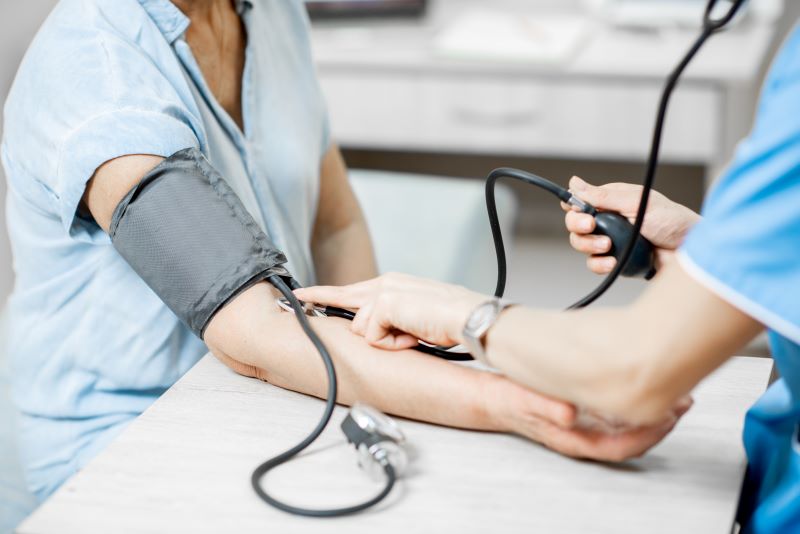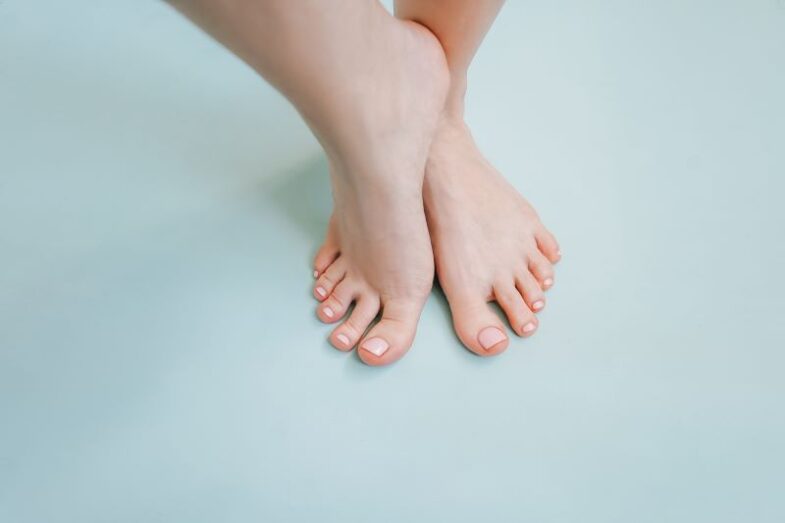How Can Blood Pressure Impact Your Feet?
Does blood pressure impact your feet? High blood pressure, or hypertension, is a condition where your blood pressure against your blood vessel walls is consistently too high. Every time your heart beats, it creates pressure that sends blood through the body. This pressure, created by both the heartbeat and the rest in between each beat, creates blood pressure.
I’m sure everyone has heard the warning about high blood pressure. Consistent high blood pressure puts an enormous amount of stain on your heart and blood vessels. If you can not get it under control, your high blood pressure can lead to heart attack, stroke, heart disease, and much more. In some cases, high blood pressure can lead to death. But how does something that starts with the heart affect the feet? How does blood pressure impact your feet? The simple answer is yes. In this article you will learn the answer to the question, “Does blood pressure impact your feet?”, why high blood pressure foot pain occurs, and what to do to lower high blood pressure and help your swollen feet.
 High Blood Pressure Foot Pain
High Blood Pressure Foot Pain
Does blood pressure impact your feet? It all starts with the blood vessels. Just as high blood pressure can damage the blood vessels near your heart, so too can high blood pressure damage the blood vessels in your extremities.
High blood pressure foot pain is a sign that you should visit a podiatrist. If left unchecked the high blood pressure foot pain can progress into something much harder to treat. If you notice cramping, especially while exercising, sores on the feet or legs, changes in color, temperature, or hair loss, it is time to see a doctor.
Can High Blood Pressure Make Your Feet Hurt
Can high blood pressure make your feet hurt? Yes, high blood pressure impacts your feet in many ways, including pain. Pain, high blood pressure, and swollen feet go hand in hand. How does blood pressure impact your feet exactly? High blood pressure often coincides with a buildup of plaque and many other issues.
Atherosclerosis
Atherosclerosis is a condition where plaque builds up in blood vessels. High blood pressure is often at the center of this buildup. If left unchecked, this buildup in plaque can lead to serious problems such as peripheral vascular disease.
Peripheral Vascular Disease
How does blood pressure impact your feet? One major foot issue that high blood pressure increases the risk for is peripheral vascular disease. Peripheral vascular disease is caused by the narrowing of blood vessels, usually due to plaque buildup. If the blockage becomes too narrow, your feet will have a hard time receiving enough blood flow. Lack of blood flow can make using your feet difficult.
Does blood pressure impact your feet in any noticeable ways? Some symptoms to look out for include changes in skin color, weak pulses in the legs, gangrene, hair loss on the legs, wounds that will not heal, numbness, weakness, pain, thickened toenails, and restricted mobility.
Decreased Circulation
High blood pressure can lead to decreased circulation. Without proper circulation, sensation is decreased and wound healing is slow. These together create the perfect environment for a sore to become infected. An infection left unnoticed can lead to complications and the need for an amputation.
 High Blood Pressure and Swollen Feet
High Blood Pressure and Swollen Feet
If you have high blood pressure and swollen feet and you want to get it under control, you have options. While visiting a doctor will provide you with an individualized treatment plan, here are common ways to lower high blood pressure and alleviate the ways blood pressure impacts your feet.
Diet and Exercise
Something you will hear over and over again on your journey to lower your blood pressure is to increase exercise and improve your diet. Often as weight increases, so too does the risk of high blood pressure and the issues it brings along. With less than 2.5 pounds of weight loss, blood pressure has been shown to decrease by around one mmHg. If you are overweight, even a minute amount of weight loss can help. Proper diet and exercise can help you lose weight.
A proper diet can decrease blood pressure by up to eleven mmHg. Vary your diet with fruits, vegetables, grains, and proteins. Limit sugar and carbs. While you can take supplements if you are struggling to get the proper amount of vitamins through your meals aim to get it through your meals.
Exercise in and of itself has also been shown to decrease blood pressure. Even if you do not lose a single pound, regular activity can lower blood pressure by five to eight mmHg. Incorporate aerobic exercises in combination with strength training for the best results.
Quit Smoking
If you are a smoker, you need to quit. Smoking is known to raise blood pressure. If you have high blood pressure quitting smoking should lower it.
Sleep
Sleep can do wonders for your health. Anything less than six hours of sleep a night increases your risk for hypertension. Do what you can to get more sleep and better sleep. Sleep on a consistent schedule. Try to go to bed and wake up around the same time every morning. In the hour leading up to sleeping, stay relaxed. Sit outside or take a bath. Avoid bright lights like the ones from television, computer and phone screens.
Reduce Stress
It is easier said than done, but if you can eliminate even a bit of stress from your life, you should see your blood pressure decrease. Take some time to uncover what in your life is causing undue stress. From there, decide what you can do to alleviate the stress these things cause. Avoiding taking on too much at once. Sometimes it is okay to say no. Solve the problems you can when you can. The less you let things pile up, the less it can stress you out.
 High Blood Pressure Foot Problems
High Blood Pressure Foot Problems
Now that you know the answer to the question, “Does high blood pressure impact your feet?” you also know how important it is to address high blood pressure foot pain before it gets out of control.
If you notice pain, numbness, swelling, discoloration or any of the other symptoms described earlier, it is time to see a doctor. The Foot and Ankle Specialists of Illinois can give you the resources you need to get your high blood pressure foot pain under control.

